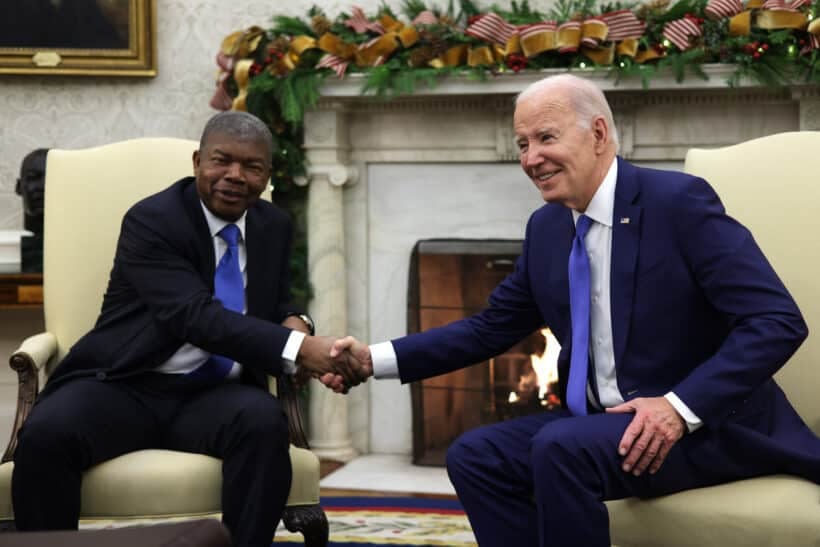
LUANDA, Dec 2 (Reuters) – U.S. President Joe Biden landed in Angola on Monday for a visit focused on a U.S.-backed railway project and on the legacy of slavery, but his decision to pardon his son Hunter Biden threatened to overshadow the official agenda.
The visit fulfils a promise to visit Sub-Saharan Africa during his presidency and aims to bolster the Lobito Corridor project, which links resource-rich Democratic Republic of Congo and Zambia to the Angolan port of Lobito on the Atlantic Ocean.
At stake are vast supplies of minerals like copper and cobalt, which are found in Congo and are a key component of batteries and other electronics. China is the top player in Congo, which has become an increasing concern to Washington.
China signed an agreement with Tanzania and Zambia in September to revive a rival railway line to Africa’s eastern coast.
“It’s going to create incredible economic opportunities here on the continent,” Biden’s national security spokesperson John Kirby said, speaking about the Lobito Corridor during a briefing to reporters on Air Force One during the flight to Luanda.
He said Biden would unveil additional commitments to the project during his visit, as well as to health, climate and clean energy programs.
However, reporters on the flight had more questions about the Hunter Biden pardon than they did about investment in Africa. The president’s spokesperson Karine Jean-Pierre responded to them mostly by repeating Joe Biden’s own statement on the issue.
The president, whose term in office finishes in January, flew out of Washington shortly after pardoning his son, who had pleaded guilty to tax violations and been convicted on firearms-related charges.
Biden himself did not answer reporters’ questions on the pardon during a brief refueling stop in the small island nation of Cape Verde, off the coast of West Africa, earlier on Monday.
During his two-day visit to Angola, Biden is scheduled to meet with President Joao Lourenco and the Zambian leader President Hakainde Hichilema, and to tour the national slavery museum and various facilities in Lobito.
Partly funded by a U.S. loan, the Lobito Corridor would make it faster and easier to export critical minerals towards the United States, which has been widely seen as a way to divert some of those resources from China.
“There is no Cold War on the continent. We’re not asking countries to choose between us and Russia and China,” Kirby said.
“We’re simply looking for reliable, sustainable, verifiable investment opportunities that the people of Angola and the people of the continent can rely on, because too many countries have relied on spotty investment opportunities and are now racked by debt,” he said.
The Lobito project is backed by global commodities trader Trafigura, Portuguese construction group Mota-Engil MOTA.LS and railway operator Vecturis. The U.S. Development Finance Corporation has provided a $550 million loan to refurbish the 1,300-kilometer (800-mile) rail network from Lobito to Congo.
(Reporting by Trevor Hunnicutt; Writing by Estelle Shirbon; Editing by Angus MacSwan and Chris Reese)

